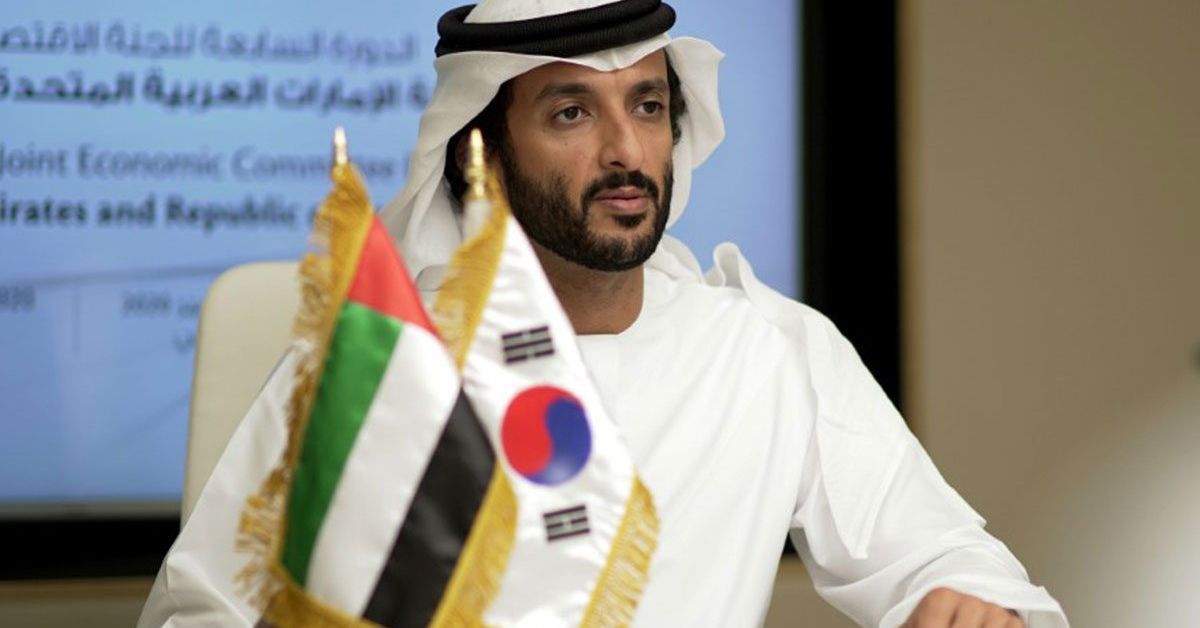“The two countries’ economies were among the fastest growing in the world in 2022, characterized by a fast pace of economic growth. The UAE economy grew by 7.6 per cent last year, and according to the World Bank estimates, the Indian economy’s GDP achieved a yearly growth of 7.7 per cent in the first nine months of the fiscal year 2022-2023. This indicates the number of economic opportunities that are available in our markets, encouraging the UAE and Indian private sectors to seize this opportunity to further the prospering economic partnership between the two countries,” Al Mari said.
The UAE wants to become a $1.2 trillion economy within the next seven years, whereas India is targeting a $5 trillion goal, the minister said in his address at the annual Confederation of Indian Industry (CII) conference 2023 in New Delhi.
The UAE is keen to support the Indian government’s vision to raise the Indian economy’s GDP to $5 trillion by the year 2025, as well as its future expansion plans in the multilateral trading system, the minister told a session titled “Is minilateralism the future of global trade?”
“The Cepa [Comprehensive Economic Partnership Agreement] signed between the two countries in February 2022 achieved positive results. It played a vital role in enhancing trade exchanges, facilitating investment flows and creating more opportunities and capabilities for exporters and importers in both markets. The agreement has enabled advantages like an open and non-discriminatory environment for cross-border trade with India, and the abolition of customs tariffs on more than 80 per cent of UAE and Indian goods. It also enhanced the access of service providers to markets across 11 main sectors and more than 100 sub-sectors including digital trade and intellectual property rights, creating job opportunities in many sectors and economic activities,” Al Mari said.
“We will sign more partnerships with other markets during the next stage in a way that supports the objectives of the ‘We the UAE 2031’ vision, which aims to raise our GDP to Dh3 trillion, increase non-oil exports to Dh800 billion, and foreign trade to Dh4 trillion,” he said, adding that the UAE has an ambitious vision to enhance economic openness to the world and to build global trade partnerships with strategic markets.
The UAE-India non-oil foreign trade grew by 24.7 per cent in Q1 2023 compared to the same period in 2022. Apart from that, the UAE’s non-oil exports to Indian markets grew by 33 per cent, while trade amounted to about $180 billion, up 10 per cent from 2021.
The UAE minister said the UAE-India partnership is a driver for economic growth that creates trade and investment opportunities for over 3.8 billion people. “Our solid economic partnership contributes to the vitality of trade and investment flows in South Asia and through it towards regional and global markets.”
“The two countries are accelerating efforts, hand in hand, to develop our economies and adopt plans, strategies, and initiatives that support our visions for expansion and investment in the new economy sectors. Through this important economic event, we look forward to enhancing bilateral trade with India in the fields of technology, digital payments, innovation, green energy, healthcare, communication, logistics, transport, waste management, and space technology,” said Al Mari.
The CII session, which was attended by Sanjeev Bajaj, president of CII; Chandragit Banerjee, director general of CII; and a number of UAE and Indian companies, global investors and businessmen, discussed an array of topics including the latest economic policies in global trade and the importance of regional and trade agreements in enhancing the future of global trade. In addition, it took a closer look at the methods adopted by free trade agreements to transform global value chains, apart from the means to enhance and facilitate market reach for importers and exporters.
Al Mari emphasised that the UAE and India present a unique comprehensive economic partnership model to the world, building on the strength of the historical and strategic relations between our two countries. This progress can also be attributed to the forward-looking vision of both leaderships and their continuous support to enhancing the prospects for economic and trade collaboration in various priority fields.







